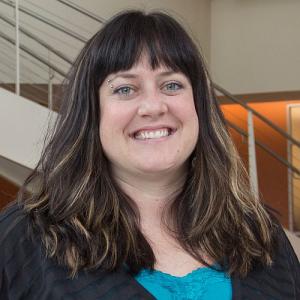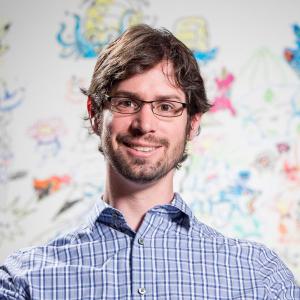Robert Bever


My primary interest is floating ice systems - Jupiter's moon Europa and Earth's ice shelves. I am interested in how these environments work and how they may become habitable. I have chosen to focus on Europa because of its potential to have what other places may not have: a stable source of energy from tides that can power geological cycles over the lifetime of the solar system. At its most basic form, life is like a battery, depending upon redox reactions to move electrons.

Dr. Fumin Zhang joined Georgia Tech's School of Electrical and Computer Engineering in 2007 as an assistant professor. He received a Ph.D. degree in 2004 from the University of Maryland (College Park) in Electrical Engineering, and held a postdoctoral position in Princeton University from 2004 to 2007. His B.S. and M.S. degrees, both in electrical engineering, are from Tsinghua University in Beijing. Fumin Zhang's research focuses on mobile sensor networks that demonstrate bio-inspired long duration autonomy.

Dr. Magnus Egerstedt is Dean of The Henry Samueli School of Engineering at the University of California, Irvine and has previously served as the Executive Director for the Institute for Robotics and Intelligent Machines at Georgia Tech. He received the M.S. degree in Engineering Physics and the Ph.D. degree in Applied Mathematics from the Royal Institute of Technology, Stockholm, Sweden, the B.A. degree in Philosophy from Stockholm University, and was a Postdoctoral Scholar at Harvard University. Dr.

In 1979 Dr. Lee conducted radiation research as an undergraduate assistant at the State University of New York at Buffalo, where he modeled and simulated the nongray particulate radiation in an isothermal cylindrical medium. At MIT, he designed high-performance fluidic amplifiers and fluid signal transmission systems and investigated analytically and experimentally the effects of temperature changes on fluid power control systems for flight backup control applications. Dr. Lee began at Tech in 1985 as an Assistant Professor.

Accomplished roboticist, entrepreneur and educator Ayanna Howard, PhD, became dean of the College of Engineering on March 1, 2021. Previously she was chair of the Georgia Institute of Technology School of Interactive Computing in the College of Computing, as well as founder and director of the Human-Automation Systems Lab (HumAnS).

Thad Starner is a Professor at the Georgia Institute of Technology's School of Interactive Computing. Thad was perhaps the first to integrate a wearable computer into his everyday life as an intelligent personal assistant. Starner's work as a Ph.D. student would help found the field of Wearable Computing. His group's prototypes and patents on mobile MP3 players, mobile instant messaging and e-mail, gesture-based interfaces, and mobile context-based search foreshadowed now commonplace devices and services.

Physiological and biomechanical mechanisms underlying fine motor skills and their adjustments and adaptations to heightened sympathetic nerve activity, aging or inactivity, space flight or microgravity, neuromuscular fatigue, divided attention, and practice in humans. He uses state-of-the-art techniques in neuroscience, physiology, and biomechanics (e.g., TMS, EEG, fMRI, single motor unit recordings, microneurography, mechanomyography, ultrasound elastography, and exoskeleton robot) in identifying these mechanisms.

Rusty Roberts is the Director of the Aerospace, Transportation and Advanced Systems (ATAS) Laboratory at the Georgia Tech Research Institute (GTRI). ATAS develops advanced systems concepts, builds system prototypes, and performs research on technologies related to aerospace, transportation, power and energy, threat systems, and food processing. A nationally recognized expert in test and evaluation, Roberts has held the position of the President of the International Test and Evaluation Association (ITEA).

Mark Riedl is an Associate Professor in the Georgia Tech School of Interactive Computing and director of the Entertainment Intelligence Lab. Mark's research focuses on the intersection of artificial intelligence, virtual worlds, and storytelling. The principle research question Mark addresses through his research is: how can intelligent computational systems reason about and autonomously create engaging experiences for users of virtual worlds and computer games.